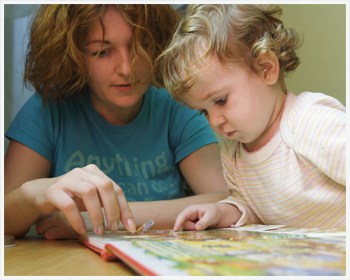Humor Me: Laughter Leads To Longevity
 Time and time again, studies have shown that people who have a positive outlook and find humor in everyday situations can actually live longer! A daily dose of belly laughs can improve your mental and physical state, making the case that laughter really is the best medicine.
Time and time again, studies have shown that people who have a positive outlook and find humor in everyday situations can actually live longer! A daily dose of belly laughs can improve your mental and physical state, making the case that laughter really is the best medicine.
Laughter boosts your immune system.
Positive thoughts and laughter help to release cells in the body that strengthen your immune system and fight illnesses, making you less likely to get sick. On the occasions when you do become sick, your body will be ready with the cells it needs to respond to the illness.
Laughter keeps your heart healthy.
After a good laugh, your heart rate and oxygen intake increase. This allows oxygen to flow more freely through your blood vessels and can reduce blood pressure levels. With improved function of the heart, your risk of a heart disease decreases.
Laughter releases endorphins.
The act of laughing triggers the release of endorphins, the body’s natural “feel good” chemicals. Endorphins play a big role in your mental health, connection with others and overall personal satisfaction, so the more giggles the better!
Laughter relieves stress.
When you laugh, you actively reduce the amount of stress hormones, known as cortisol, and inflammation found in your body. The entire body relaxes for up to 45 minutes after laughing, relieving muscle tension, improving your mood and reducing anxiety.
Laughter increases brain function.
The increased blood flow that results from laughing is also good for the brain. It can improve brain function and memory and help to combat depression. Laughter can also help improve coping skills and spark creativity.
Look on the bright side and start with a smile today! Get together with a group of good friends, watch a funny movie or comedian, play with your kids or grandkids, or spend time with a pet. You’ll be more apt to find humor in life and, in turn, reap the mental and physical benefits of laughter.
How To Instill Leadership Skills In Your Child’s Future
The role of a parent can often become quite hectic with the demands of daily life. Along this daily journey, many parents don’t realize their influence on their children’s minds. Our children watch as we balance these demands and lead the family through each day.
While leadership skills can come naturally, children learn lessons that significantly impact them later in life. The right words at the right time can make all the difference.
Here are five ways to help you instill the right leadership skills in your child’s future:
Be A Good Role Model
Be aware that your child is watching, and allow them to see how well you balance your business and personal demands each day.
You Win Some, You Lose Some
Great leaders handle failure as gracefully as they handle success. Emphasize perseverance. Your children must understand that success as a leader can be achieved through persistence, hard work, and a good heart.
Encourage Them To Talk
Allow your children to speak for themselves with servers at a restaurant, a grocery store clerk, or the lifeguard at the swimming pool. Through your guidance and allowing them to speak for themselves, this will help them gain confidence in themselves.
Bookworms Become Leaders
Studies have shown that children who read want to know more and ask questions to delve deeper into various subjects. This inquisitive side of a child is the best foundation for a leader’s growth.
Optimism Beats Pessimism – Every Time
Your child should be aware that optimism is connected to success. Reward optimism, especially when a goal is achieved.
In small ways, today’s leaders can prepare younger generations for their future as business leaders. These suggestions will create better leaders to help children perform better in school and develop better personal relationships.
The Benefits of Male and Female Teachers in Early Education
The Benefits of Male and Female Teachers in Early Education
Early childhood education refers to the learning that occurs from birth to age eight, including daycare, preschool, kindergarten and up until second grade. Safe and nurturing early childhood education programs are crucial to help children develop physically, socially, emotionally, and intellectually. While the early education workforce largely consists of female teachers, having the opportunity to learn from a male teacher can be very beneficial as well. Here’s why:
- Male and female teachers have different viewpoints. Children are sponges and absorb so much information in daycare and school. When both male and female teachers are present in early childhood education programs, children have the advantage of learning from both of their viewpoints and incorporating that knowledge into their everyday lives. This diverse learning environment can greatly benefit students as they grow.
- Male teachers can serve as role models. In the early childhood education setting, teachers are kind, caring, and patient, among many other things. Having a male teacher who exhibits these personality traits is ideal for both boys and girls. Being a positive male role model helps all students, but specifically can be helpful for those who don’t have a father figure in the home.
- Learning from a male teacher can help break down stereotypes. Seeing male teachers in the classroom is a great way to show children that they can be anything they want to be in life. In addition, early childhood educators who are male can also show students (particularly boys) that being empathetic, emotional, and caring is a good thing.
- Males have a different way of teaching. Male teachers are more likely to have an active classroom and use humor to engage students. While studies have shown that students learn just as well with male and female teachers, some students may benefit from this type of classroom.
Many parents appreciate the opportunity for their children to learn from a male teacher in the early childhood education setting. If your child is placed in a classroom with a male teacher, consider yourself lucky and enjoy the year!
Read To Your Child… Infant To PreK
 Did you know that reading to your children at a very early age often prepares them for success in Kindergarten and beyond? Yes, a simple and effective way to prepare our children for formal schooling is to read together on a daily basis. Children who are routinely read to from infant, toddler and Pre-K are much more academically prepared to learn than children who were not read to – AND – children who have been routinely read to enter kindergarten prepared to learn from the very first day! There is no to catch them up on skills.
Did you know that reading to your children at a very early age often prepares them for success in Kindergarten and beyond? Yes, a simple and effective way to prepare our children for formal schooling is to read together on a daily basis. Children who are routinely read to from infant, toddler and Pre-K are much more academically prepared to learn than children who were not read to – AND – children who have been routinely read to enter kindergarten prepared to learn from the very first day! There is no to catch them up on skills.
So how does reading aloud together prepare our children for kindergarten? When we read, think about all words that your child is hearing and beginning to understand before they enter the kindergarten classroom. Studies show that the number of vocabulary words a child knows upon entering kindergarten is an indicator of academic success in the years ahead. In addition, reading to our children also develops their listening skills and attention spans which is very important to success in a classroom environment.
Make Water Safety Your Priority
Swimming is the most popular summer activity. The best thing you can do to help your family stay safe is to enroll in age-appropriate swim lessons.
Follow these safety tips whenever you are in, on or around water.
- Swim in designated areas supervised by lifeguards.
- Always swim with a buddy; do not allow anyone to swim alone. Even at a public pool or a lifeguarded beach, use the buddy system!
- Ensure that everyone in the family learns to swim well. Enroll in age-appropriate Red Cross water orientation and Learn-to-Swim courses.
- Never leave a young child unattended near water and do not trust a child’s life to another child; teach children to always ask permission to go near water.
- Have young children or inexperienced swimmers wear U.S. Coast Guard-approved life jackets around water, but do not rely on life jackets alone.
- Establish rules for your family and enforce them without fail. For example, set limits based on each person’s ability, do not let anyone play around drains and suction fittings, and do not allow swimmers to hyperventilate before swimming under water or have breath-holding contests.
- Even if you do not plan on swimming, be cautious around natural bodies of water including ocean shoreline, rivers and lakes. Cold temperatures, currents and underwater hazards can make a fall into these bodies of water dangerous.
- If you go boating, wear a life jacket! Most boating fatalities occur from drowning.
Prevent Unsupervised Access to the Water
- Install and use barriers around your home pool or hot tub. Safety covers and pool alarms should be added as additional layers of protection.
- Ensure that pool barriers enclose the entire pool area, are at least 4-feet high with gates that are self-closing, self-latching and open outward, and away from the pool.
- The latch should be high enough to be out of a small child’s reach.
- If you have an above-ground or inflatable pool, remove access ladders and secure the safety cover whenever the pool is not in use.
- Remove any structures that provide access to the pool, such as outdoor furniture, climbable trees, decorative walls and playground equipment.
- Keep toys that are not in use away from the pool and out of sight. Toys can attract young children to the pool.
Maintain Constant Supervision
- Actively supervise kids whenever around the water—even if lifeguards are present. Do not just drop your kids off at the public pool or leave them at the beach—designate a responsible adult to supervise.
- Always stay within arm’s reach of young children and avoid distractions when supervising children around water.
- Know What to Do in an Emergency. If a child is missing, check the water first. Seconds count in preventing death or disability.
- Know how and when to call 9-1-1 or the local emergency number.
- If you own a home pool or hot tub, have appropriate equipment, such as reaching or throwing equipment, a cell phone, life jackets and a first aid kit.
- Enroll in Red Cross home pool safety, water safety, first aid and CPR/AED courses to learn how to prevent and respond to emergencies.
Contact the Training Support Center at 1-800-RED-CROSS or [email protected].
Source: http://www.redcross.org/get-help/prepare-for-emergencies/types-of-emergencies/water-safety
Five Ways To Celebrate Your Mom From The Heart

Last month we celebrated Mother Earth, and this month it’s time to celebrate mothers everywhere. If you don’t have something special planned for the mom in your life, now is the time to get thinking. This year, rather than buying the standard cards and flowers, why not celebrate mom from the heart? Here are a few suggestions:
1. Plan a day together.
Whether you’re an only child or have several siblings, planning a day together with your mom is one of the best ways to celebrate Mother’s Day. Ask her what she would like to do, or take her out to her favorite restaurant – either way, she most likely just wants to spend the day with the people she loves most.
2. Do something nice.
Sometimes the best gift to receive is someone else taking on task or chore that you’ve been putting off. Do something nice for Mother’s Day by getting chores done for her, completing a home repair or even just mowing the lawn.
3. Create something personal.
Gifts are always better when they are thoughtful and personal. Create something that reflects your mother’s personality or your time together – a photo book of your family, a basket with new tools for her favorite hobby or a self-care kit with bath bombs and face masks to relax.
4. Send her on a trip.
After years of caring for you, maybe it’s time to gift mom the vacation she deserves. Whether it’s down the street to the spa, or across the world, a trip is the perfect gift to show your appreciation for her love and care.
5. Keep it simple.
Not all mothers love gifts or grand gestures. If your mom prefers to keep it simple, sometimes just telling her how much she means to you is enough.
How To Help Kids Love Learning
Albert Einstein once said, “I have no special talent. I am only passionately curious.”
It’s well known that Einstein was never one for the classroom. While he excelled in many of his studies, school left him frustrated. He eventually dropped out of school when he was fifteen. His personal value of school aside, Einstein had something beyond the book of knowledge that drove his ongoing discovery of the world. He had grit, curiosity, and a thirst for learning that drove his brilliant advances in science and mathematics.
While we know that most of us don’t have an Einstein living under our roof, we do want our kids to have that same thirst for knowledge. As parents, we hope that our kids will discover a passion within them for a lifetime love of learning.
This love of learning starts at home in the environment we create for our kids at each phase of their life. Here are a few ideas to consider as you help your own kids value their education and develop a passion for discovering something new about their world.
LET THEM ASK QUESTIONS
At some point around the age of two or three, kids will start asking “why?”—all the time. And this pretty much doesn’t stop until they learn how to Google or ask Siri and don’t need to ask you anymore. As frustrating as all the “why” questions can be at times, asking questions is a good thing. Wonder and curiosity is something built within our DNA, but it’s something that must be cultivated throughout our lives. Giving kids a chance to ask questions, and tapping into their natural sense of wonder, lets them know that questions are an important part of learning and discovery.
ENGAGE THEIR INTERESTS
Let’s be honest. Not every kid loves school or learning, especially when they struggle with certain subjects. Other times, kids simply don’t have an interest in what they are being taught. Some gravitate towards math and science, while others excel in the humanities. Play to your kids’ strengths and engage their interests. Find way to help them learn what doesn’t interest them as much by tapping into what makes them tick. All kids are wired for fun, so make it fun. When we engage their interests and play to their strengths, we encourage a life-long love of learning in an area where they might have long term success as an adult.
ALLOW MISTAKES
We once had a teacher tell us that she actually likes when kids make mistakes because it gives her insight into how they’re learning and what she needs to do to help them succeed. When kids realize everyone makes mistakes when they are learning something new, and it’s part of learning, they will begin to value the process. Kids won’t be afraid to experiment and try new things when the weight of perfection is lifted. So create a culture in your family where everyone is trying new things, and where failure is okay. Even if you don’t succeed the first time—or the tenth time—you’re learning and growing, and hopefully having some family fun along the way.
MODEL LEARNING
It’s hard to expect our kids to value learning if we don’t demonstrate that we value it in our own lives. Talk to your kids about what you’re discovering as you read, complete work projects, or have compelling conversations with others. Learn something new and bring your kids in on the process. Ask questions and look things up together, read books or watch TED talks together, and discuss over dinner. Make learning a regular part of your home life.
INTERACT WITH THEIR TEACHERS
Even if your kids seem to be doing well in school, reach out to their teachers. Volunteer in the classroom. Find out what your kids are learning and have meaningful conversations about school. Other than home, school is where they spend most of their time. So partner with teachers to help your kids have the best experience possible. This also builds bridges with teachers, so if something comes up that needs to addressed, you have some relational equity that will help you navigate those conversations well.
You may discover your own way of helping your kids value learning. How ever you do that, always keep the spirit of fun. Learning something new will help you become better at whatever you do. That’s something to celebrate. Help make learning enjoyable and something your kids will strive to do the rest of their lives.
Source: http://theparentcue.org/how-to-help-kids-love-to-learn/
Positive Words Do Make A Difference!
With a new year upon us this is the perfect reminder to cherish the good that surrounds us with POSITIVE words and behaviors – and there is no better place to start than as a parent. Parenting is a balancing act that requires control – often tangling with the fine line of encouragement and exasperation. Positive words that you speak over your kids can help instill confidence and control in your WHOLE family in both the short term and long term.
Words spoken can become meaningless when they are not exhibited in an action. However, words alone do have great power – both positive and negative. We can all make a choice to speak in a positive way to everyone around us – especially to our children and all young ones that we encounter throughout the day. This behavior is one that they will begin to imitate – even though they may not recognize they are doing so. You never know how the words of encouragement that you speak today will affect your kids to carry with them for the years ahead.
Be intentional in the morning – and set aside specific words that you are going to speak to kids. Write them down if you have to, or simply use your favorite word of encouragement that brings a smile to YOUR child’s face – over and over again. The more you can follow up these words with actions of affirmation – the more power these words will have. Have fun and spread the kindness beyond your home – you’ll be amazed at the goodness that will follow!
Holiday Giving Is The Perfect Lesson In Love
The holiday season is the perfect time to teach our children the beauty of giving back to others. At a time when so many people are focused on getting something – why not take a moment to guide your children in the merit and blessing of giving!
Here are some ideas to help you get started:

Bake As A Family. Although having kids in the kitchen with mixers, cookie dough and measuring cups filled with powder may not be the most care-free option for a mother – this time together can be the best time for bonding and may even turn into a family tradition! As a family, deliver these cookies to your neighbors, your local fire and police station, and even have some packaged at the door for the frenzied postal and delivery drivers who are working hard to get your packages to you on time for the holiday season
Sponsor A Family. There are local organizations that can help you find a family that needs your help this holiday season. Include your children in buying gifts. Let them pick out what “they think”is the best gift idea – and you can supplement these choices with those that you believe are needed and will ensure the holiday is filled with joy for this family in need.
Help The Homeless. Even though this is the time of year when many organizations focus on the homeless community, you can pack gift bags for your family to hand out during your daily travels. Choose practical items such as socks, gloves, hats, snacks, water bottles, gift cards for food and some interesting items that will surprise them! This is something that can be done all year long – your kids will really enjoy doing this – and hopefully it will become a tradition with their own family.
Four Ways Your Child Can Help YOU Prepare For The Holidays!
The holidays can bring a lot of cheer to the home, but sometimes stress can enter the door now and then as well! The holiday activities tend to get a little tougher when the children are out of school. When there’s too much to do and not enough time, it’s time to get the whole family pitching in to lighten the load. Kids are often so excited and eager for the big day that they’ll gladly help with chores. We’d like to help you with some ideas to “de-stress as you prep” this Christmas season.
1. Clean Their Room
The holiday season is a time for entertaining family and friends. This is the perfect time to have your children clean their rooms, as well as clear out all clutter to make way for new toys. This chore includes the cleaning out closets, clearing out under the beds, and taking care of any items that are not being used. This task may require guidance from an older sibling or a parent. Use this as a time to encourage generosity, thankfulness, and let them choose to donate items to local shelters for families in need.
2. Create Christmas Cards
Now is the time to get out the art supplies! Gather the kids around a table and talk about all of the people in your lives that are so special and would love to have a personal card delivered. Encourage your youngsters to make holiday cards for their own sending to friends and family. If you have some pretty card stock or construction paper with markers and stickers – this can become quite an exciting “chore” for children of all ages. If this it too much – why not have your children help you stuff envelopes and give them a lesson on where a stamp is placed on an envelope as well as return address labels. This is something most kids don’t know, and will benefit from this teachable moment!
3. Create Gift Tags
A homemade gift tag makes every gift that much more special. Gather up your art supplies and show your kids hows to create a simple or fancy gift tag. You will need construction paper, kid-safe scissors, a hole punch, twine or ribbon, markers, stickers and even glitter (if you can handle the mess!) The gift tags can be cut into all sorts of shapes and sizes. Let their imagination go wild…You can never have too many gift tags!
4. Help With Light Cleaning
When you have company coming over, it can be fun to involve the whole family as a cleaning crew to prep the home for the new arrivals. Children of all ages can be given safe tasks for cleaning. In fact, even the littlest in the bunch will enjoy the task of putting things back where they belong. Let them help dust, sweep, wipe down counters, and straighten the pillows on the couch. With everyone working together to make the house tidy, you’ll get the work done faster. Kids usually enjoy pitching in to help with these important holiday chores, too.
When you include your children it not only lightens your own load, but it gets them involved and makes them feel like they are a part of the whole holiday process. There are many teachable moments when you work together, and when kids feel important and needed – the holidays get that much brighter!







